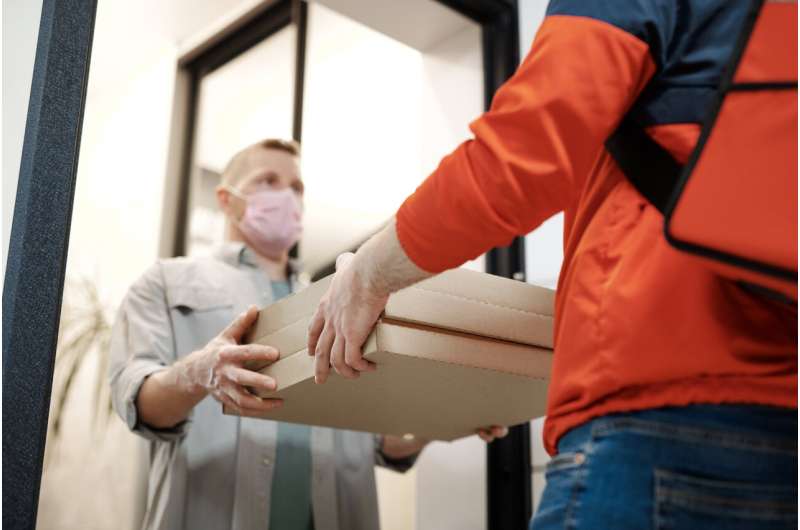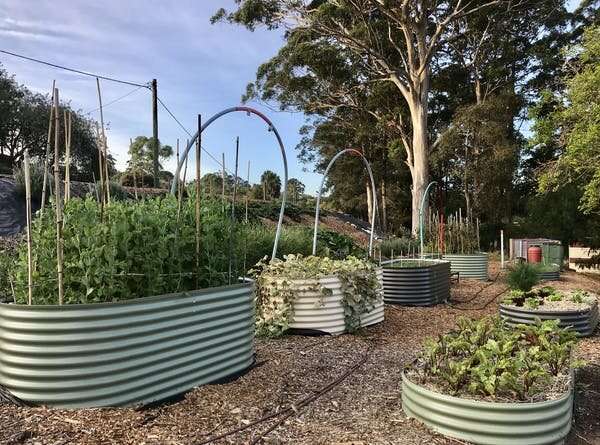If you took to growing veggies in the coronavirus pandemic, then keep it up when lockdown ends

The COVID-19 pandemic produced a run on the things people need to produce their own food at home, including and .
This turn to self-provisioning was prompted in part by the high price rises for produce—including – and empty .
As well as people looked online for information on growing food. Google searches for "" hit an all-time worldwide high in April. Hobart outfit Good Life Permaculture's video on racked up over 80,000 views in a month. Facebook kitchen garden groups, such as , sought to share information and inspiration.
The good life
Given the many benefits of productive gardening, this interest in increased self-sufficiency was an intelligent response to the pandemic situation.
Experienced gardeners can produce enough fruit and vegetables year-round to supply two people from .
by providing contact with nature, physical activity and a healthier diet. Contact with also has positive health effects.
While Australians have traditionally valued the feeling of independence imparted by a degree of self-sufficiency, psychological benefits arise from the .
Amid COVID-19, gardeners gathered online and community gardens around the world brought people together through gardening and food. In some areas, community gardens were . Although Australian community gardens paused their public programs, most remained open for gardening adhering to social distancing regulations.
We always dig deep in a crisis
Vegetable gardening and poultry-keeping often surge in popularity during times of social or economic insecurity, such as the COVID-19 pandemic.
These responses are built on an established Australian tradition of home food production, something I have .
Yet history tells us it's not easy to rapidly increase self-provisioning in times of crisis—especially for those in greatest need, such as unemployed people.

This is another reason why you should plant a vegetable garden (or keep your current one going) even after the lockdown ends, needed to make our food systems more fair and resilient.
In the second world war, for example, Australian food and agricultural supply chains were disrupted. In 1942-3, as the theatres of war expanded and shortages loomed, the YWCA organised women into "" to grow vegetables and the federal government launched campaigns encouraging home food production.
Community-based food production expanded, but it was not possible for everyone, and obstacles emerged. In Australia, there were disruptions in the supply of seeds, fertiliser and even rubber for garden hoses. In London, resourceful gardeners scraped pigeon droppings from buildings to feed their victory gardens.
Another problem was the lack of gardening and poultry-keeping skills and knowledge. The Australian government's efforts to provide good gardening advice were thwarted by local shortages and weather conditions. Their advertisements encouraging experienced gardeners to help neighbours may have been more effective.
Home food production has also increased during times of economic distress. During the in the 1920s and 1930s, a health inspector in the inner suburbs of Melbourne reported, with satisfaction, that horse manure was no longer accumulating: "… being very much in demand by the many unemployed who now grow their own vegetables."
The high inflation and unemployment of the 1970s—as well as the oil shocks that saw steep increases in fuel prices—saw more people take up productive gardening as a low-cost recreation and buffer against high food prices.
The urge to grow your own in a crisis is a strong one, but better preparation is needed for it to be an equitable and effective response.
Beyond the pandemic
The seen earlier this year tell us we were again insufficiently prepared to rapidly scale up productive home gardening.
We need to develop more robust local food systems, including opportunities for people to develop and share food production skills.
These could build on established programs, such as western Melbourne's . Particularly in built-up urban areas, provision of safe, accessible, free or low-cost gardening spaces would enable everyone to participate.
More city farms with livestock, large-scale composting and seed saving, can increase local supplies of garden inputs and buffer against external disruption.
Like other crises before it, COVID-19 has exposed vulnerabilities in the systems that supply most Australians with our basic needs. While we can't grow toilet paper or hand sanitiser, there is a role for productive gardens and small-scale animal-keeping in making food systems resilient, sustainable and equitable.
Self-provisioning doesn't replace the need for social welfare and wider food system reform. But it can provide a bit of insurance against crises, as well as many everyday benefits.
Provided by The Conversation
This article is republished from under a Creative Commons license. Read the .![]()
















